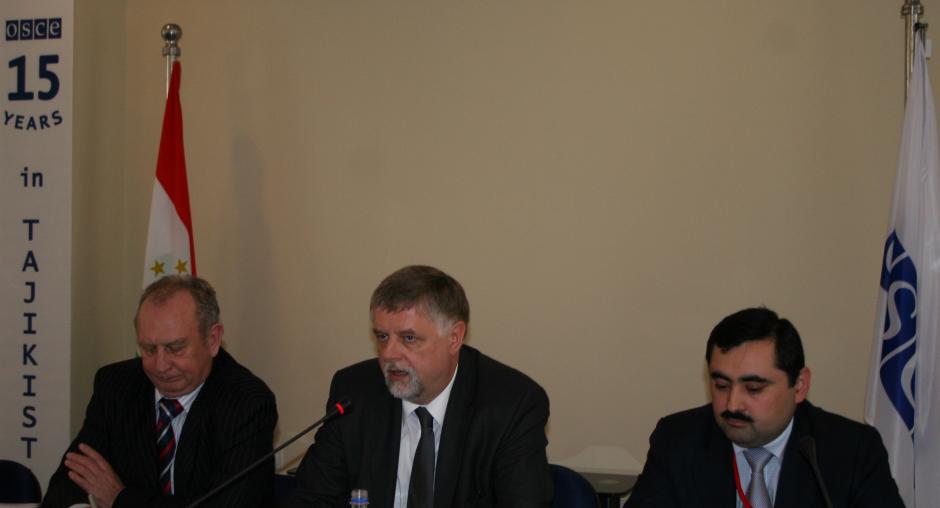Border security, economic development and human rights focus of OSCE-Tajikistan Task Force meeting

DUSHANBE, 20 February 2009 - Enhanced border security, economic development and human rights were among the topics discussed at the third OSCE-Tajikistan Task Force meeting that took place in Dushanbe today, and which coincided with the 15th anniversary of the OSCE presence in Tajikistan.
The event brought together more than 50 OSCE officials and representatives from different Tajik ministries, agencies and civil society. The meeting was co-chaired by Abdullo Yuldashev, the First Deputy Foreign Minister, Herbert Salber, the Director of the OSCE Secretariat's Conflict Prevention Centre, and Vladimir Pryakhin, the Head of the OSCE Office in Tajikistan.
The OSCE Greek Chairmanship was represented by Ambassador Louis-Alkiviadis Abatis, Deputy Head of the Greek Chairmanship Task Force in Athens. Representatives of the 2008 Finnish Chairmanship and 2010 Kazakh Chairmanship were also present.
"Today there are new opportunities to promote stability and democratic processes," said Yuldashev.
"This meeting provided a useful and unique format for joint consultations on issues of common concern such as strengthening democratic institutions, political dialogue and civil society," said Abatis.
Salber praised the meeting, saying that "this meeting shows the strong relations between the OSCE and Tajikistan in promoting regional stability and security".
They discussed the role of Tajikistan in the OSCE, new developments and achievements since the 2008 Task Force meeting, and plans to assist the country further, based on the OSCE Office's new mandate of 2008, which tasked it with promoting the implementation of OSCE principles and commitments, with a special emphasis on regional co-operation.
Participants of the Task Force meeting also discussed the establishment of a Border Management Staff College, which is due to be opened in Dushanbe this spring and will train senior-level border officers, and ways to assist customs services in combating illegal arms trafficking and the drug trade in the region, including intercepting shipments of drug precursors, used for heroin production in Afghanistan.
Discussions also focused on supporting political pluralism and dialogue in Tajikistan. Participants exchanged views on OSCE support for information centres for labour migrants, small and medium-sized enterprises, water management and development of national sectoral environmental strategies, as well as for further democratization of the media, increased co-operation to combat violence against women and promoting women in leadership positions. With respect to strengthening human rights, representatives of the OSCE, government, and civil society exchanged views on support for the newly established Ombudsman institution and access to places of detention.
"The Task Force provided a unique opportunity for privileged co-operation with Tajikistan, which helps strengthen joint collaboration and consultations in response to the needs of the host country, to analyze achievements and developments of past activities, and to catalyze the development and deployment of new projects," said Pryakhin.
Representatives of Tajik agencies commended the third meeting for its focus on practical implementation.
